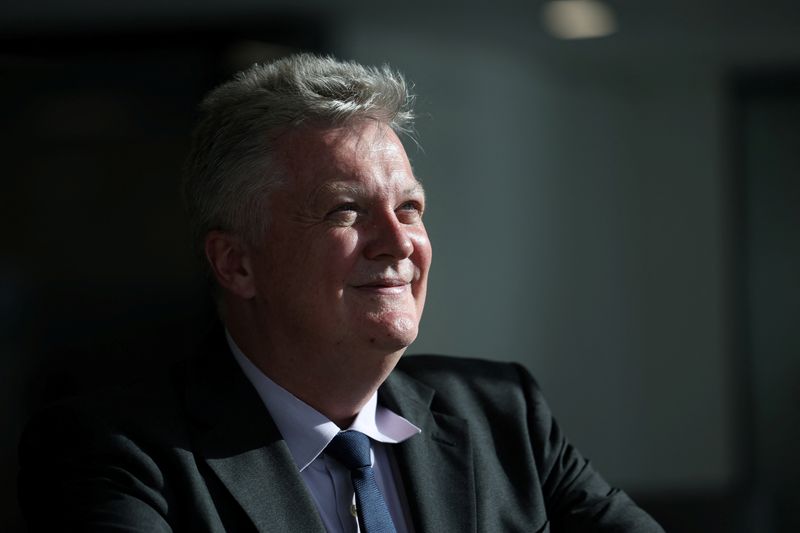By David Milliken and William Schomberg
LONDON (Reuters) -The Bank of England should move only gradually with cutting interest rates, Chief Economist Huw Pill said on Friday, a day after Governor Andrew Bailey was quoted as saying the BoE might move more aggressively to lower borrowing costs.
Pill warned of lingering inflation risks in a speech that prompted a partial recovery in sterling after it slumped on Thursday following Bailey's comments.
"While further cuts in Bank Rate remain in prospect should the economic and inflation outlook evolve broadly as expected, it will be important to guard against the risk of cutting rates either too far or too fast," Pill told the Institute of Chartered Accountants in England and Wales.
"For me, the need for such caution points to a gradual withdrawal of monetary policy restriction."
The BoE's Monetary Policy Committee is expected to cut interest rates by a quarter-point at its next meeting in November. It cut rates for the first time in more than four years in August, a decision which Pill opposed.
Financial markets are more divided about whether the BoE will follow a rate cut in November with another in December. The BoE has not cut rates at consecutive meetings since 2020.
Bailey told the Guardian newspaper that the central bank could move more aggressively to cut rates if there was further welcome news on inflation.
Sterling rose by a fifth of a cent against the U.S. dollar when Pill's speech was published, having plunged by more than a cent on Thursday.
Investors have largely expected the BoE to cut rates more slowly than the U.S. Federal Reserve and the European Central Bank, a view which Bailey's comments challenged.
Andrew Goodwin, chief UK economist at Oxford Economics, said the chance of a December rate cut was rising as he judged Bailey's view was more representative of the majority on the BoE's nine-member Monetary Policy Committee.
"The Budget on October 30 is likely to be a decisive factor in whether Bailey's camp decides to step up the pace of rate cuts, particularly given the recent speculation that the fiscal rules will be changed in a way that allows looser fiscal policy," Goodwin said.
Finance minister Rachel Reeves has said higher taxes are likely at her first budget since Labour returned to government on July 4 but she and Prime Minister Keir Starmer have also stressed the importance of boosting investment.
Pill said he remained concerned about the possibility of structural changes in Britain's economy that could sustain inflation pressures, which gave "ample reason" for caution in assessing how quickly that persistence would lift.
Pill also said that inflation among services firms and pay growth represented "a continued source of concern".
An alternate economic forecasting model - which had similar starting assumptions to the BoE's main model, but did not have the same built-in constraints on possible outcomes - showed inflation staying slightly above 2% over the medium term.

Pill said the alternate model should be taken seriously, and that it suggested the neutral interest rate and the natural rate of unemployment could both be higher than the BoE had assumed.
"I am worried more about inflation than what's reflected in the MPC's published forecasts," he said.